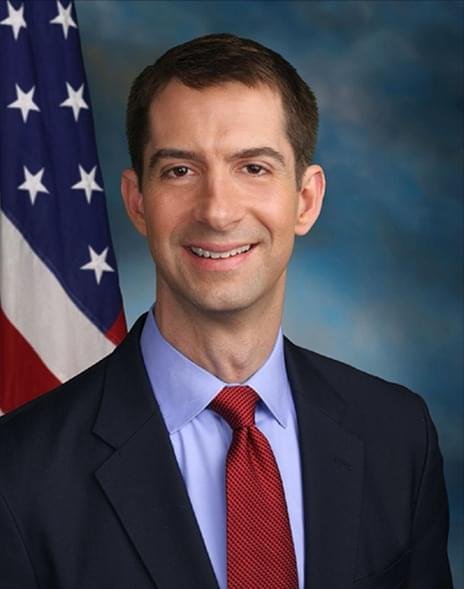Washington, D.C. — Senator Tom Cotton (R-Arkansas) today introduced the Cellphone Jamming Reform Act of 2025, legislation which would prevent inmates from using contraband cellphone use in prison facilities by allowing state and federal prisons to use cellphone jamming systems. Congressman David Kustoff (Tennessee-08) is leading companion legislation in the House.
Senators Bill Cassidy (R-Louisiana), Shelley Capito (R-West Virginia), Mike Crapo (R-Idaho), Lindsey Graham (R-South Carolina), Bill Hagerty (R-Tennessee), Cindy Hyde-Smith (R-Mississippi), James Lankford (R-Oklahoma), and James Risch (R-Idaho) are cosponsoring the legislation.
“For far too long, contraband cellphones have been a major security threat in our prisons, allowing criminals to coordinate crimes from behind bars. This legislation is a common-sense step to cut off their ability to threaten witnesses, organize drug trafficking, and endanger law-abiding citizens from within prison walls,” said Senator Cotton.
PICRYL Image
“Criminals are using contraband cellphones to commit crimes while in prison. The extent of coordinated criminal activity carried out by inmates is a serious threat to public safety,” said Congressman Kustoff. “As a former United States Attorney, I have seen first-hand the dangerous effects of contraband cellphone use to both law enforcement officers and our communities. It should be impossible for prisoners to organize gang activity, traffic drugs, and coordinate any other wrongdoing from behind bars. The Cellphone Jamming Reform Act is commonsense legislation that will crack down on cellphones in prisons and protect inmates, guards, and the public at large.”
Text of the legislation may be found here.
Background:
The use of contraband cellphones is widespread in both federal and state prison facilities. Inmates have used contraband cellphones to conduct illegal activities, including ordering hits on individuals outside of the prison walls, running illegal drug operations, conducting illegal business deals, facilitating sex trafficking, and organizing escapes which endanger correctional employees, other inmates, and members of the public.
Last year, two 13-year-old boys were killed at a birthday party in Atlanta after inmates in a Georgia prison used contraband cellphones to order their murder. In 2024, Georgia authorities confiscated more than 15,500 contraband cellphones and seized more than 8,000 in 2023.
In December 2024, two California inmates were convicted of murder, racketeering, and other RICO-related crimes for running a heroin and meth trafficking operation from their prison cells.
In 2018, a gang fight over territory using cellphones to trade contraband sparked a brawl inside the Lee Correctional Institution near Bishopville, South Carolina, and left seven inmates dead and 20 injured.
Bureau of Prisons Correctional officer Lt. Osvaldo Albarati was murdered in 2013 for interrupting an illicit contraband cellphone business. His actual assassination was initiated by an inmate using a contraband cellphone to contact the gunman as outlined in the indictment.





